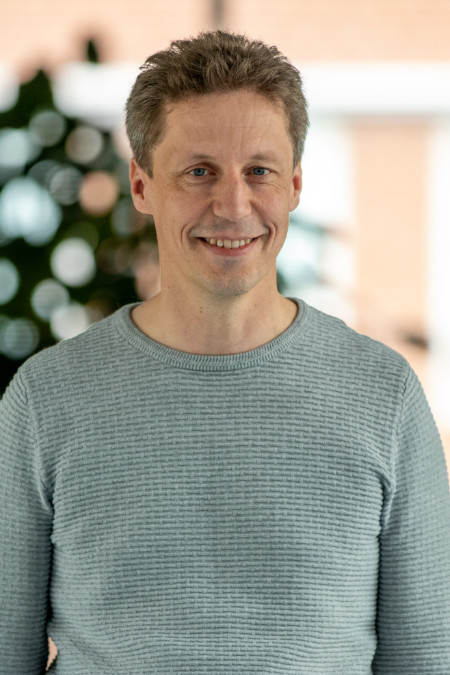The Interface Between Public Sector Consultancy and Research
Meet Mogens Johannsen
“What happens biochemically when we age? Why does our diet - and in particular our metabolism -play such a big role? And do we have the ability to prolong the period of our lives where we don't have age-related diseases similarly to what has been observed in laboratory animals? These are some of the questions that fascinate me.”
Mogens Johannsen, born 1969, is deputy head of department for research at the Department of Forensic Medicine.
He is professor at the Section for Forensic Chemistry, where he leads the Bioanalytical Unit comprising research groups with a broad focus. Employees are specialists in areas including metabolomics, which is the analysis of cellular metabolites, chemical biology, forensic chemistry and toxicology.
The unit also functions as a core facility which provides analyses of organic molecules in collaboration with other research groups, as well as with government agencies and institutions, the healthcare system and private companies.
As is also the case with the section's public sector consultancy, a major part of the work in the unit is rooted in the analysis of small molecules, and Mogens Johannsen is comfortable in the interface between public sector consultancy and basic- and applied research.
"We carry out research into current issues - for example, new methods that can help the police to date biological traces at a crime scene. I'm very pleased with the synergy we have with public sector consultancy," he says.
Mogens Johannsen graduated from Aarhus University and Heidelberg University in Germany with a degree in organic chemistry.
He has been employed as an associate professor at the Technical University of Denmark, before coming to Aarhus University in 2002.

Here, he has developed a particular interest in metabolism and biological aging, and he is especially interested in how human lipid metabolism affects the biological ageing process.
"What happens biochemically when we age? Why does our diet - and in particular our metabolism -play such a big role? And do we have the ability to prolong the period of our lives where we don't have age-related diseases similarly to what has been observed in laboratory animals? These are some of the questions that fascinate me," says Mogens Johannsen.
He is currently working on finding a combination of small molecules that can help to maintain a healthy metabolism and therefore hopefully healthier aging.
Mogens Johannsen's work actually has its starting point in basic research at molecular level, but it is important for his own job satisfaction that the scope of his research is wide enough to occasionally include animal experimentation and potentially clinical studies.
"It's very satisfying to be able to bring research into the world that directly means something to people. Whether this is via a close link to biology and healthy aging, or because we develop a new method that can help the police, is less important," he says.
For Mogens Johannsen, this makes working at the Department of Forensic Chemistry even more enjoyable, as here it is possible to exploit the synergy and collaboration with the staff who carry out public sector consultancy.
"Together, we can do research that reaches a little beyond what you'd normally be concerned with in forensic medicine. In this way, we hope also to help advancing the forensic research field," he explains.